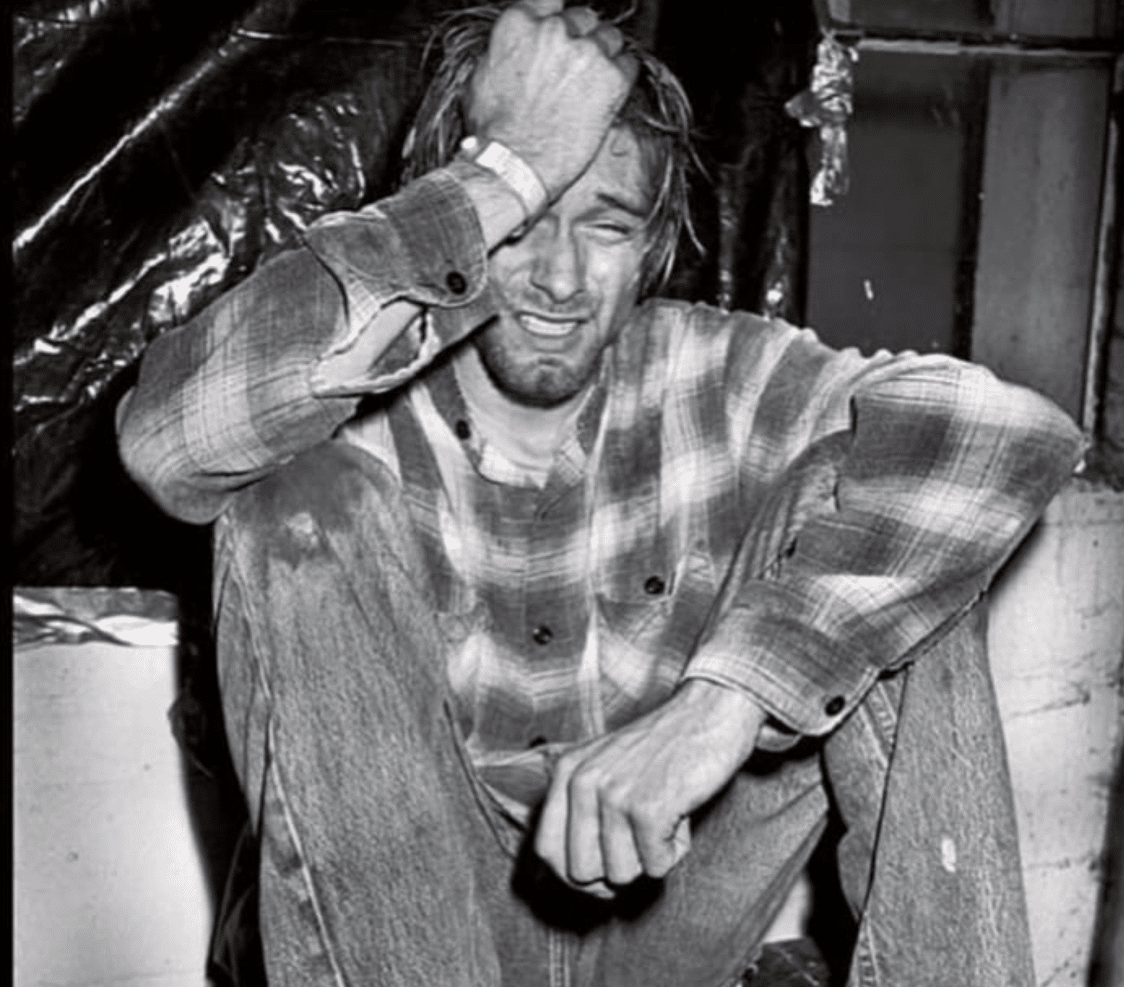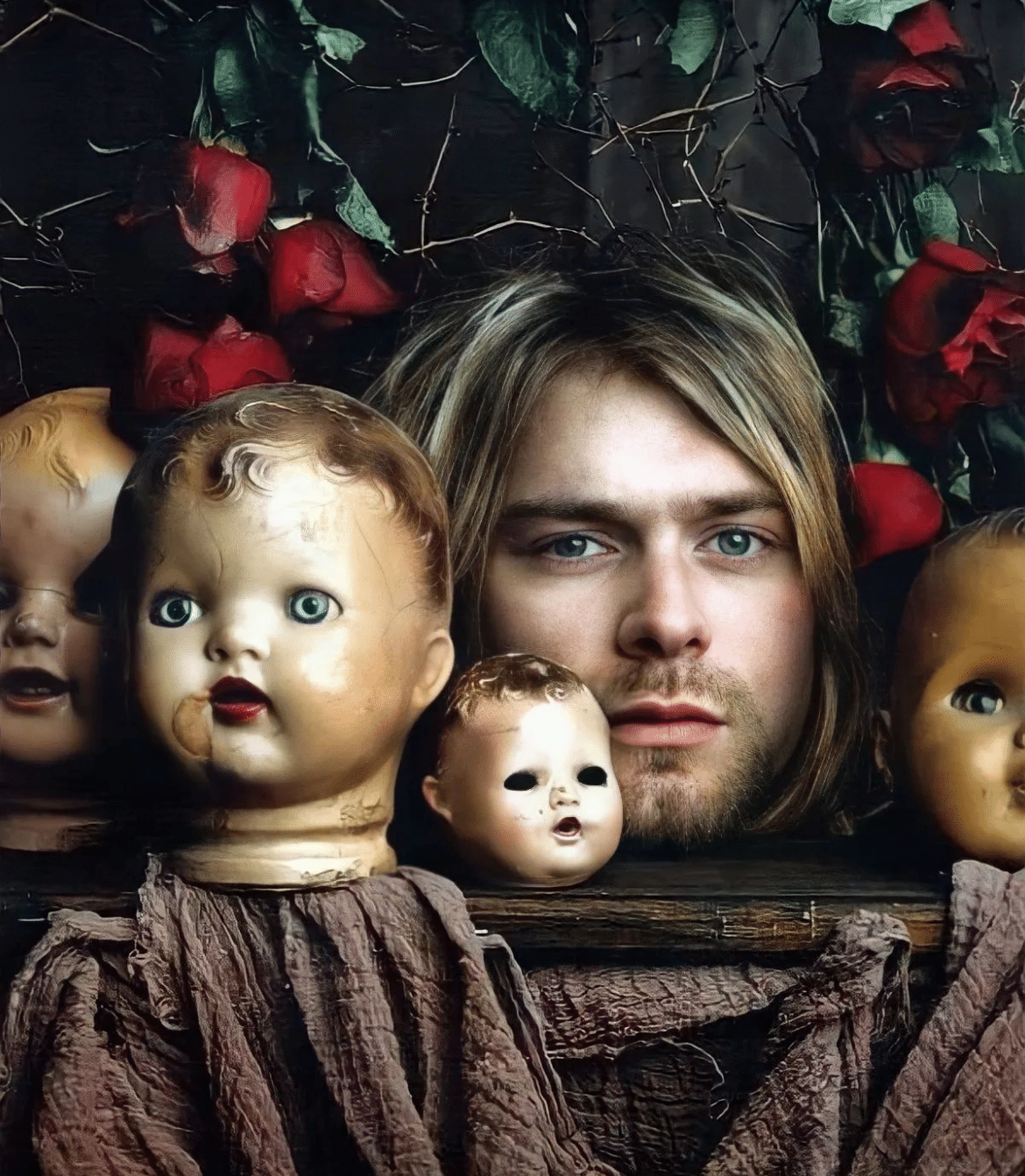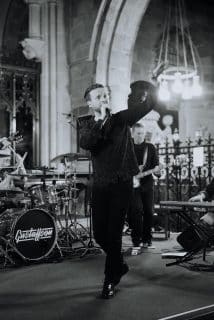Kurt Cobain’s mental health was grist to the mill of the music industry
Culture
Kurt Cobain's mental health was never taken care of by the music industry that used him. And our culture may not give us his kind again.
Kurt Cobain was an addict with many serious mental health problems. Often, rock n roll stars are lionised and idealised for their self-destruction, existing as both sacrificial lambs to the gods of excess, and cautionary tales; the sight of them, the dangerous glamour of them is tied up in fantasy, envy, hostility, prurience, rubber-necking, and a quasi-religious need to see the innocent and brave suffer and die. Society spits them out periodically, and in their eyes society is reflected, and what they show back to us often makes people go crazy with love or hate. The place where the rock n’ roll artist sits, between their own passionate and appalled take on the world, and the world itself as it responds to them, often means they are consumed by self-medication or the straight up fracturing of their minds.
Or the place they used to sit.
For things don’t seem to play out like this any more. It’s hard to know why. Perhaps the idea of rock n roll died a bit of a death over the years, with only so much recycling it could take, until it finally expired post-White Stripes/Strokes, around the time when Amy Winehouse died and Alex Turner protected himself with a turn into pastiche. When the biggest rock star of the era decides it’s the lamest thing ever, then where do you go? Rock has had to go underground again, which may be to its eventual benefit.
The interesting thing about Kurt Cobain was that he thought being a rock star was the lamest thing ever too.
But Kurt was far too vulnerable and honest a character to do such a sleight of hand (bar their famous miming Top of the Pops appearance). Dave Grohl recently recalled his daughter asking about him and saying to her, “He was sweet…very shy around people.” And that really is what you see when you look back at footage of him now: a heroic vulnerability. Rage there too of course, injustice, pain, but above all a vulnerability to him that left him open to the ravages of the music business. He was not a business operator, not a delusional rock star wannabe, not a glad hander and player; all that was anathema to him as a punk. That was the game he and his peers had no interest in. He was too smart for that, and it was too lame. Embarrassing.
Dressing down, playing sloppy, taking the joke, it didn’t matter, so long as it was from the heart. And really, his heart was exposed for all to see.
He was not a romantic hero like Hendrix or Jim Morrison, though he had some of their musical genius and sensitivity. He was closer to Ian Curtis, an existential hero, abjectly disturbed by the world outside and the world inside him, yet that musicality meant he wanted to connect with melodies and sweetness, than the remote Curtis ever did.
No doubt he was aware of all these kind of comparisons – rarely has there been a star so cripplingly self-conscious. Nick Drake or Cat Power maybe, but they never were so huge. Kurt was at the front of the biggest band in the world. Dave Grohl said his daughter replied to him, “’It must have been hard for him to be so shy but to go out in front of all those people.’ That was very astute of her.” Imagine the pressure on a shy person, or rather imagine the conflict between Kurt’s impulse to be a big rocking star – he loved Aerosmith and Zeppelin – and as a punk, being utterly nauseated by that same impulse. Especially when he got to the top and realised it was even more full of bullshit than he imagined. Little doubt that, as the best film about Nirvana shows – ‘Live! Tonight! Sold Out!’ – he was made ill by the conflict he experienced – crippled by stomach problems – as well as the simply machine of big corporate rock and show businesses, where his private life was obliterated and his image sold around the world. For a shy guy at heart…well, no wonder heroin became an option. One he wilfully chose: “I wanted a habit,” he told Rolling Stone. It was numbing for him no doubt, a way to copy with the physical and psychological pain.
The other big film about Kurt, Montage of Heck, aims to root what happened to Kurt more in his childhood, the divorce of his parents, the alienation of life in Seattle, the solace in music to escape the depression. Admirable, and important to understand that here was a traumatised young person putting into highly pressurised circumstances – despite its rewards – in an industry where nobody was even considering the issue of mental health. Back in the early 90s it basically didn’t exist, except in criminal cases.
Yet, Montage of Heck also misses his artistry. You don’t get a sense of the genius, of his method or the impact, the horror and elation, the Leonard Cohen meets John Lennon of his work that Courtney Love saw.
And this is a troubling thought. For while we may be able to better support people like Kurt now, the world does not seem to be producing more Kurts. Are the lonely misfits now finding solace online rather than in making music? Is creativity now viewed as simply making effective social media posts? Are we offering our kids a limited palette with which to express themselves? Or rather, overwhelming their palettes with so much spellbinding information that the palette is just another screen? Is the death of the rock n roll star the fault of the digital age, who are being neutered into submission?
No more Kurts. No more Jimis. No more Amys. Well, you may say fewer young people being victims of a voyeuristic, sadistic world hung up on spectacle. But also fewer greats pushing art to the limits to make sense and provide hope in that same world.

Fact is, there was no glory in Kurt killing himself at 27. It was a tragedy. We were deprived a great musician and songwriter who would have made an outstanding body of work. There was nothing cool about it, it was just sad and senseless. It was not fate, if he could have found help or reached out, he could have survived it. And perhaps if another Kurt were to come along now, there might be better help out there for them. Lets hope that’s the case, and that if we do see his kind again, we are, well, a little kinder to them.
Trending

Join The Book of Man
Sign up to our daily newsletters to join the frontline of the revolution in masculinity.

















